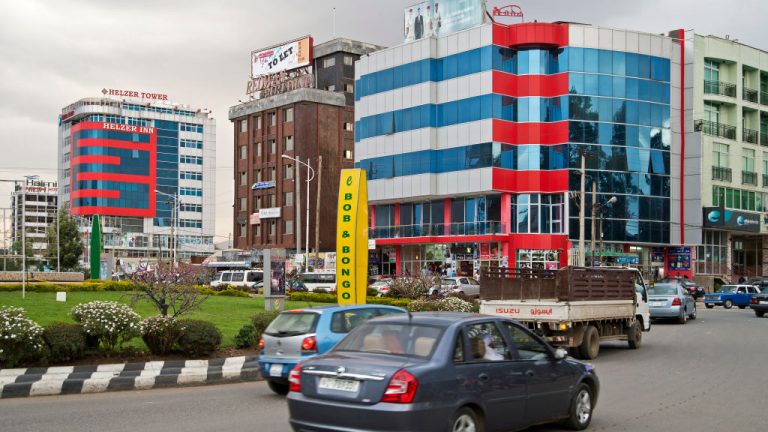Spotlighting the Tech Startups Activities in Ethiopia

Ethiopia’s tech startup ecosystem is growing rapidly and showing promise, making it an attractive destination for tech startups. The country has seen a significant increase in the number of tech startups, venture capitalists, and accelerator programs in recent years. With a large and young population, growing connectivity, and favorable government policies, the country is well-positioned to become an African hub for innovation and entrepreneurship. This article will examine the Ethiopian tech startup ecosystem and what makes it unique and appealing.
The East African country has great potential for entrepreneurs and startups, with a rapidly growing economy in Africa, a large and young population of over 112 million people, and a capital city, Addis Ababa, ranked 692nd in the top 1000 cities globally by the StartupBlink Global Ecosystem Ranking Report. Also, the relatively advanced ecosystem of Addis Ababa as a major hub allows for smaller ecosystems in the region to grow through connections with the city. The majority of Ethiopian startup founders focus on local problem-solving, due to language and trade barriers, and the economy presents many opportunities for startups and entrepreneurs, especially through digital means.
Also, in a quest to support and encourage techpreneurs as well as paving way for the blossoming of a digital economy in the country, Ethiopia established its first Hub, IceAddis in 2011. It started as a university initiative but spun off to be an independent venture. Since then, over 10 other hubs have opened in Ethiopia including the privately owned X-Hub, Blue Moon, and Icog Labs. The government also owns ICT hubs in the 4 major regional cities of Mekele, Bahir Dar, Dire Dawa, and Adama as well as the national ICT Park in the Capital, Addis Ababa. These provide support for young entrepreneurs.
Ethiopian Tech Startup Funding
Again, over the years, venture capitalists (VCs) have become increasingly interested in the Ethiopian tech startup ecosystem. Several local and international VC firms are now operating in the country, providing much-needed capital and support to entrepreneurs. Tech startup funding in the country has been on the rise in the last couple of years, moving from a paltry $0.65 million in 2019 to $6 million in 2022.
Leading Startups in Ethiopia
There is a handful of tech startups sprouting across the East African country. some of them are: Belcash is an ICT platform for mobile banking that offers micro-money transfer, bill payment, remittances, online payment solutions, and calling credit. Deliver Addis is Ethiopia’s number one online delivery service, while Gebeya is an Edtech startup that provides specialized industry-specific training in software engineering, design, and digital. Arifpay is a universal mobile Point of Sales (mPOS) electronic payment platform for merchants, banks, and consumers. Others are EthioChicken, M-Birr, and HelloSolar.

Supports System for the Ethiopian Tech Startups
There are also several accelerators and initiatives in place to support the growth of the tech startup ecosystem in Ethiopia. For example, Blue Moon is an initiative to discover, nurture, and fund exceptional agribusiness ideas among youth. Startup Factory Ethiopia was created to solve the challenge of building a successful, scalable, and sustainable business in a country with a challenging business environment and nascent entrepreneurial ecosystem. The “Startup Ethiopia” event brought together founders, investors, accelerator/incubator representatives, and others to discuss the future of Ethiopia’s innovation scene.
Additionally, there are key organizations in place to support the development of the startup ecosystem in Ethiopia. The Addis Ababa Angels Network is a group of individual investors who have consolidated their financial resources to back early-stage technology and tech-enabled innovative businesses. Renew LLC is an impact investment firm based in Addis Ababa that serves the Impact Angel Network, a global network of investors seeking to realize both social impact and financial returns on their investments in small and medium enterprises (SMEs) in Africa. Addis Ababa University, considered to be among the top 1,000 universities in the world, offers entrepreneurship courses in economics and engineering and has a Technology Business Incubation Center for faculty and students.
Active investors in the Ethiopia tech startups
Finish Fund for Industrial Cooperation (Finnfund): which sunk $10 million into Ethio Chicken others are DEG, a German investment firm, the European Investment Bank which financed the $9.87 million round into M-Birr, Partech Partners, Orange Digital Ventures and Consonace Investment Managers that funded Gebeya with $2 million, DANIDA, Oxfam Enterprise Development Program, and Novastar Ventures.
Why More Investors Should Consider Ethiopia
Ethiopia has one of the fastest-growing economies (at an average of 9.5% per year) in Africa, with a gross domestic product (GDP) growth rate projected by the World Bank to reach 5.7% this year, driven by industry and by private consumption and investment. The country has a large and diversified economy, with agriculture, manufacturing, and services being the major contributors. The government has taken a proactive approach to attracting foreign investment and promoting entrepreneurship, which has helped to spur the growth of the tech startup ecosystem.
Addis Ababa has a seed of an entrepreneur support system and community, and there are several private sector organizations helping entrepreneurs succeed in Ethiopia’s business environment. Initiatives like the Digital Ethiopia 2025 program, which is a digital transformation strategy, and the Startup Act of 2020, which established a National Startup Council to oversee and support the country’s startup ecosystem, signal a growing interest in the Ethiopian government in moving its economy into the 21st century.
Population
Ethiopia has a population of over 122 million people, making it the second-most populous country in Africa. The majority of the population is under the age of 30, making it a young and dynamic market of a well-educated, tech-savvy population eager to use technology to improve their lives. On the business side, this is a huge market for potential investors and tech founders who should leverage it to drive growth and profitability. However, it is important to note that it is just 25% of the Ethiopian population that has access to the internet which creates a huge business opportunity for investors in that vertical to solve this problem and reap a massive return on investment for it.
The Ethiopian tech startup ecosystem has made significant progress in recent years, but there is still much work to be done. The country faces several challenges, including a lack of access to capital, a shortage of skilled professionals, and limited infrastructure. However, despite these challenges, the future of the Ethiopian tech startup ecosystem is bright. With a young and dynamic population, increasing connectivity, and growing support from the government and investors, the country is well-positioned to become a hub for innovation and entrepreneurship in Africa.
